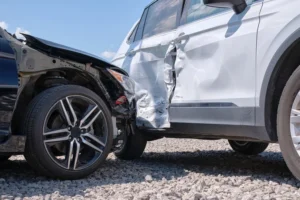Understanding Florida’s Laws on Distracted Driving Accidents

Distracted driving is a significant issue on Florida’s roads, contributing to a substantial number of car accidents each year. Understanding Florida’s laws regarding distracted driving can help you navigate the legal process if you’re involved in an accident caused by a distracted driver. Here’s a breakdown of the key aspects of Florida’s distracted driving laws and their impact on personal injury claims.
Key Aspects of Florida’s Distracted Driving Laws
- Texting While Driving Ban: Florida law prohibits texting while driving. Under this law, drivers are not allowed to send or read text messages while operating a vehicle. This rule is enforced as a primary offense, meaning that drivers can be stopped and cited solely for texting while driving.
- Handheld Device Restrictions: For drivers under the age of 18, Florida bans the use of handheld devices entirely while driving. This includes making phone calls or using apps, as young drivers are required to use hands-free technology.
- Other Distracted Driving Activities: Florida’s laws also cover other forms of distracted driving, including eating, adjusting the radio, or engaging in activities that divert attention away from driving. While these activities are not explicitly banned, they can be considered evidence of negligence if they contribute to an accident.
Impact on Personal Injury Claims
- Proving Distracted Driving: To pursue a personal injury claim involving a distracted driver, you must prove that the driver’s distraction was a contributing factor to the accident. This may involve gathering evidence such as witness statements, phone records, or surveillance footage.
- Establishing Negligence: Distracted driving is considered a form of negligence. If you can demonstrate that the driver was distracted and that this distraction directly led to the accident, you can establish a strong case for negligence.
- Insurance Claims: When filing an insurance claim, documenting the driver’s distraction can strengthen your case. Insurance companies may be more likely to offer a fair settlement if you can show that the driver was in violation of Florida’s distracted driving laws.
Steps to Take After an Accident Involving a Distracted Driver
- Gather Evidence: Collect evidence at the scene of the accident, including photographs, witness statements, and any details that indicate the other driver was distracted. This information will be crucial for building your case.
- Obtain a Police Report: Ensure that the accident is reported to local law enforcement. A detailed police report can provide an official account of the incident and any indications of distracted driving.
- Seek Medical Attention: Prioritize your health by seeking medical care for any injuries sustained in the accident. Medical records will support your claim by documenting the extent of your injuries and their relation to the accident.
- Consult with an Attorney: Navigating a personal injury claim involving a distracted driver can be complex. Consulting with a personal injury attorney can help you understand your rights, gather evidence, and effectively pursue compensation for your damages.
Legal Considerations
- Comparative Negligence: Florida’s comparative negligence rule may apply if you are found to have contributed to the accident in some way. Your compensation may be reduced based on your share of fault.
- Insurance Coverage: Understanding the at-fault driver’s insurance coverage is important for managing your claim. If the driver’s insurance is insufficient, you may need to explore additional avenues for compensation.
- Legal Representation: A personal injury attorney can provide guidance on how to navigate the legal system, present evidence of distracted driving, and negotiate with insurance companies to ensure you receive fair compensation.
Conclusion
Understanding Florida’s laws on distracted driving is crucial for effectively managing personal injury claims involving such accidents. By gathering evidence, documenting the driver’s distraction, and consulting with a personal injury attorney, you can navigate the complexities of your case and work towards obtaining the compensation you deserve.

 Call Us Today
- It's Free
Call Us Today
- It's Free